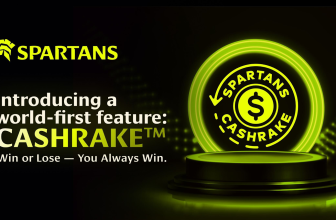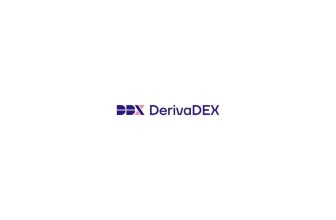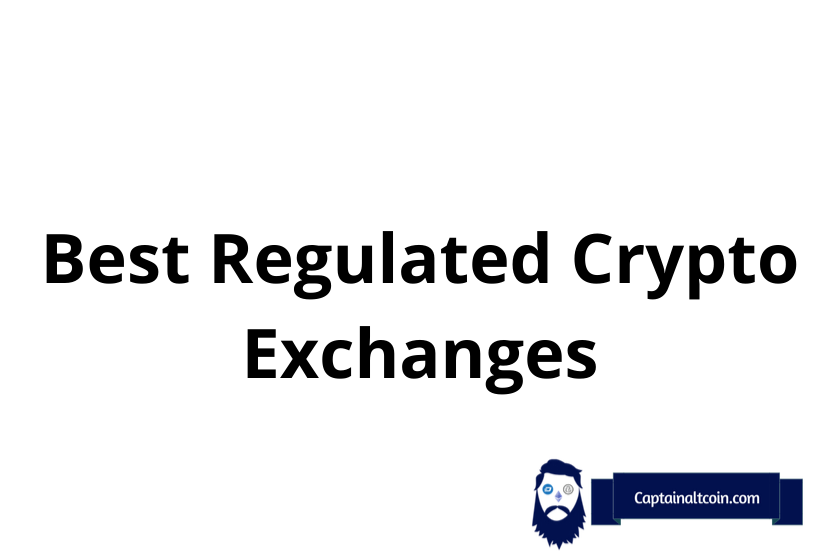
If you want to buy or sell Bitcoin or some other cryptocurrencies, in most cases, you will have to use one of the cryptocurrency exchanges. Services that provide cryptocurrency exchanges often function similarly to a stockbroker, providing you with currency trading tools, such as BTC, ETH, and LTC.
If you choose which exchange you want to use, then the best is the crypto exchange that makes it easier to trade the currencies you want with strong security features and low fees.
According to CoinGecko, there are 504 crypto exchanges, and most of them are unregulated. Therefore, when choosing the exchange you want to use, you need to consider a large number of factors. What currencies do they support, prices, security, withdrawal options, etc?
This article will help you find out the best-regulated crypto exchanges, their advantages and disadvantages, who regulates them, whether they have insurance funds, and how high it is.
What you'll learn 👉
Regulated vs unregulated crypto exchanges
Since its inception in 2010, regulation, and its implementation, have been a fear for many digital currency enthusiasts. One group of cryptocurrency lovers believes that the point of decentralized currencies is to be unregulated, while others believe that the regulation of the cryptocurrency market is an indicator of the proper development of this market, and a sign of the rise of cryptocurrencies.
And whether you belong to any of them, that does not change the fact that the regulation and daily introduction of new rules takes place in the crypto sphere.
We are witnessing almost daily changes in the price of cryptocurrencies, caused by the introduction of a new regulation (recently, there have been examples of the introduction of crypto laws in countries like El Salvador, China, Turkey, etc., which significantly affected the price of cryptocurrencies in the market).
But what are the main differences between a regulated and an unregulated cryptocurrency exchange?
In short, in order for a cryptocurrency exchange to be regulated, it must obtain approval from the competent state regulatory body of the country in which it operates.
Different exchanges offer different customer services and experiences, but when you compare regulated and unregulated exchanges, the main focus should be on the security of investing your funds. If you use the services of unregulated exchanges, you accept risks such as fraud, loss of funds, lack of legal assistance and you may even be prosecuted.
So, let’s take a look at some of the best regulated cryptocurrencies exchanges.
Best regulated crypto exchanges
PrimeXBT
PrimeXBT offers a competitive fee structure that appeals to a wide range of traders. The platform charges a uniform trading fee of 0.05% across all trades, making its pricing transparent and predictable for users. This straightforward approach to fees is complemented by the absence of deposit fees, encouraging traders to engage with the platform without worrying about excessive costs. Withdrawal fees, however, are variable and depend on the specific cryptocurrency and the network’s current conditions, which is standard practice across the industry to cover transaction costs on the blockchain.
The platform’s global reach is impressive, with services available in over 150 countries, offering traders from around the world access to its comprehensive trading tools and features. However, it’s important to note that PrimeXBT does not operate in the USA and Canada due to regulatory restrictions, which is a common challenge for many cryptocurrency exchanges. In terms of supported cryptocurrencies, PrimeXBT provides a robust selection that includes major coins such as Bitcoin (BTC), Ethereum (ETH), Litecoin (LTC), and Ripple (XRP), among others. This selection caters to both traders looking to engage with popular cryptocurrencies and those interested in exploring a wider array of digital assets.
Ease of use is a hallmark of the PrimeXBT platform, designed to accommodate both novice and experienced traders. The platform boasts a user-friendly interface that simplifies navigation and trading activities, making it accessible for users of all experience levels. Advanced traders can also benefit from a suite of analytical tools and features, including customizable charts and indicators, to inform their trading strategies.
| Pros | Cons |
|---|---|
| Competitive trading fee of 0.05% | Withdrawal fees vary by asset |
| Wide global reach, available in 150+ countries | Not available in the USA and Canada due to regulatory restrictions |
| Supports major cryptocurrencies and offers a robust selection | Limited information on regulatory compliance |
| User-friendly interface suitable for all experience levels | |
| Comprehensive educational resources |
Coinbase/Coinbase Pro
First, what is the difference between Coinbase and Coinbase Pro? Coinbase and Coinbase Pro are two separate but connected platforms owned by the same company. While Coinbase is mainly used by beginner investors in their first cryptocurrency purchase, Coinbase Pro, on the other hand, is a professional trading platform for active traders. Coinbase Pro provides its users with advanced charting and trading capabilities, giving advanced traders superior control.
| Coinbase | Coinbase Pro | ||
| Pros | Cons | Pros | Cons |
| It has lower fees than “easy buy” competitors | It has slightly higher fees than most exchanges | International market | Customer support could be better |
| You can purchase cryptocurrency faster than most exchanges | Wallets are less secure than a wallet that is controlled by you | Low fees | Not beginner friendly |
| Beginner friendly and easier to use than an exchange | It monitors how you spend your cryptocurrency | Good liquidity | |
| It safely stores customer funds | |||
| Regulated and trustworthy company |
US Coinbase, Inc., the company which operates Coinbase/Coinbase Pro and GDAX in the United States, is licensed to engage in money transmission in most US jurisdictions.
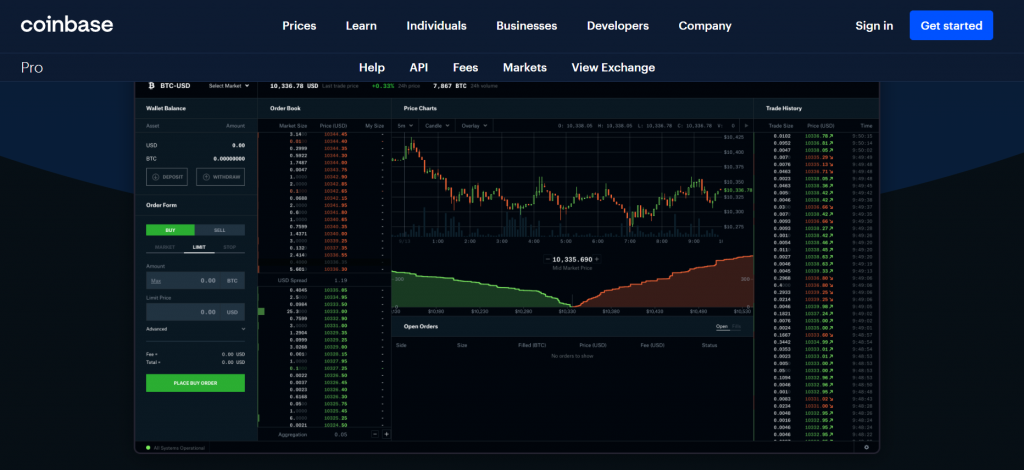
Coinbase/Coinbase Pro are required to comply with a number of financial services and consumer protection laws, like:
The Bank Secrecy Act – They must verify customer identities (KYC), maintain records of currency transactions for up to 5 years, and report suspicious transactions.
The USA Patriot Act – They must designate a compliance officer to ensure compliance with all applicable laws, create procedures and controls to ensure compliance, conduct training, and periodically review the compliance program.
Customer USD funds on Coinbase/Coinbase Pro are insured by the Federal Deposit Insurance Corporation (FDIC). This means that the balance on your account is protected up to $250,000.
CoinGecko Trust score: 10/10
Kraken
Kraken is a centralized crypto exchange based in San Francisco, United States, established in 2011. There are over 90 coins and 395 trading pairs on the exchange. Kraken is one of the largest crypto exchanges in EUR volume, liquidity, and the trading of USD, CAD, JPY, and GBP.
Kraken is also very transparent, and they are offering a high level of security and proof of reserve audits.
| Kraken
ProsConsThe platform supports margin trading Just like all other centralized exchanges, holds the private keys to your account’s crypto addressGreat security initiativesAccount verification time is no faster than at other competing platformsReasonable and competitive feesKraken Pro user interface (UI) is not as beginner friendlySuper fast SEPA withdraws |
Kraken is a fully regulated crypto exchange and is accessible to the US residents (except for residents of New York and Washington. Kraken is regulated by The Financial Crimes Enforcement Network (FinCEN). Exchange is registered as a MSB (Money Services Business) with:
– FinCEN in US
– FINTRAC in Canada
Kraken is not FDIC (Federal Deposit Insurance Corporation) insured. You can find on their website, “Cryptocurrency exchanges do not qualify for deposit insurance programs because exchanges are not savings institutions.”
Even if Kraken doesn’t have traditional insurance, they provide more than $100M in its own insurance fund to cover any potential losses.
CoinGecko Trust score: 10/10
Cex.io
Cex.io is a centralized crypto exchange based in London, England, established in 2013. There are over 90 coins and 215 trading pairs on the exchange. Cex.io has a sleek, new, and user-friendly interface, and even beginners will manage to trade Bitcoins on it.
| Cex.io | |
| Pros | Cons |
| User friendly interface | Extensive Verification Process to Increase Purchasing Limits |
| Well Established Company | |
| Great and Fast Support | |
| High liquidity |
Cex.io is registered with FinCEN and it applies AML and KYC policies. Exchange is registered as an MSB.
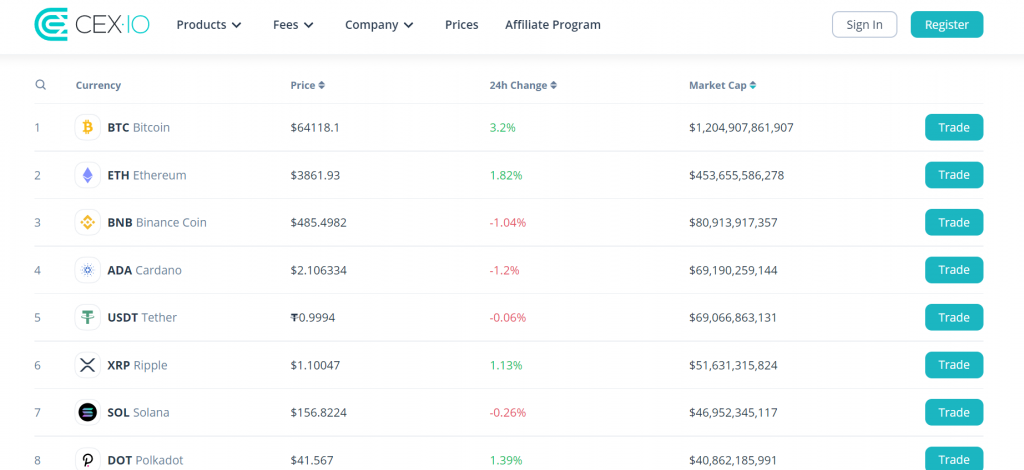
US residents’ USD funds are insured by FDIC, up to a maximum of $250,000 per person.
CoinGecko Trust score: 9/10
Uphold
Uphold is a centralized crypto exchange based in New York, United States, established in 2015. There are over 80 coins and 1000 trading pairs on the exchange. Uphold is a multi-asset exchange medium that provides a lot of selection to exchange different assets besides buying and selling cryptocurrencies.
| Uphold | |
| Pros | Cons |
| A Beginner-Friendly Interface | (Sometimes) Unresponsive Mobile App |
| Tight Security | Not the best Customer Support Out There |
| “Anything-to-Anything” Trading | Trading Limitations |
Uphold is registered with FinCEN and it applies AML and KYC policies. Exchange is registered as an MSB.

Uphold is not FDIC insured but does offer its own insurance. They offer a USD Stable Coin, backed in a 1:1 ratio with physical dollars in FDIC-insured banks.
FTX.us
FTX.us is a brand-new US-regulated crypto exchange established in 2020. There are over 20 coins and 50 trading pairs on the exchange. Although one of the newest crypto exchanges on the market, FTX.us has managed to grow a reputation as a reliable and safe place to trade.
| FTX.us | |
| Pros | Cons |
| Sophisticated trading platform | Severely curtailed compared to FTX global |
| Margin trading available | |
| Low fees |
West Realm Shires Services Inc. or FTX.us is registered with FinCEN, and it applies AML and KYC policies. Exchange is registered as an MSB.
CoinGecko Trust score: 7/10
BitPanda (for EU)
BitPanda is a centralized crypto exchange based in Austria, EU, established in 2014. There are 18 coins and 23 trading pairs on the exchange. BitPanda allows crypto-to-crypto trading in 54 countries around the world (the USA and China not included).
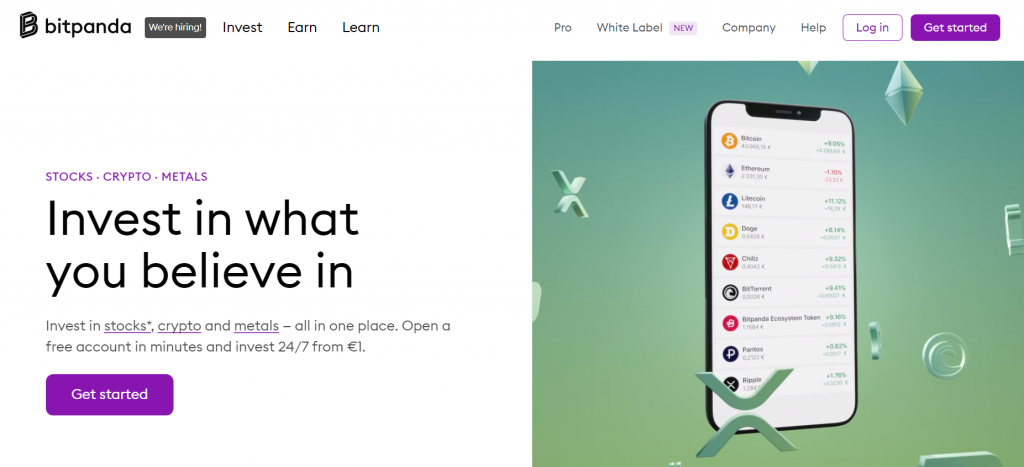
This platform is especially popular within the European Union. Furthermore, BitPanda accepts some of Europe’s most common payment methods – like SOFORT, EPA, and Skrill (including conventional deposit options like Visa and MasterCard).
| BitPanda | |
| Pros | Cons |
| Wide variety of payment methods | Fees aren’t explicitly stated |
| Great for beginners | |
| Relatively low fees | |
| Great security |
BitPanda is fully EU-regulated with the highest level of compliance with EU laws, and it applies AML and KYC policies.
This exchange does not have an insurance fund for crypto funds. BitPanda likes to highlight that they have never been hacked, indicating their excellent security system.
CoinGecko Trust score: 7/10
eToro (for EU)
eToro is a centralized crypto exchange based in Austria, EU, established in 2013 (founded in 2007, started trading crypto in 2014). There are over 30 coins and 100 trading pairs on the exchange. eToro aims to offer a fluid web-based, mobile platform that allows users to trade almost anything in a single portfolio.
| eToro | |
| Pros | Cons |
| Social/copy-trading platform | Higher forex fees |
| Safe and regulated | Slow withdrawal process |
| Free stock trading in the EU | Minimum deposit amount |
| Impressive cryptocurrency offering |
eToro is fully EU-regulated with the highest level of compliance with EU laws, and it applies AML and KYC policies. This exchange operates under and complies with the Markets in Financial Instruments Directive (MiFID).
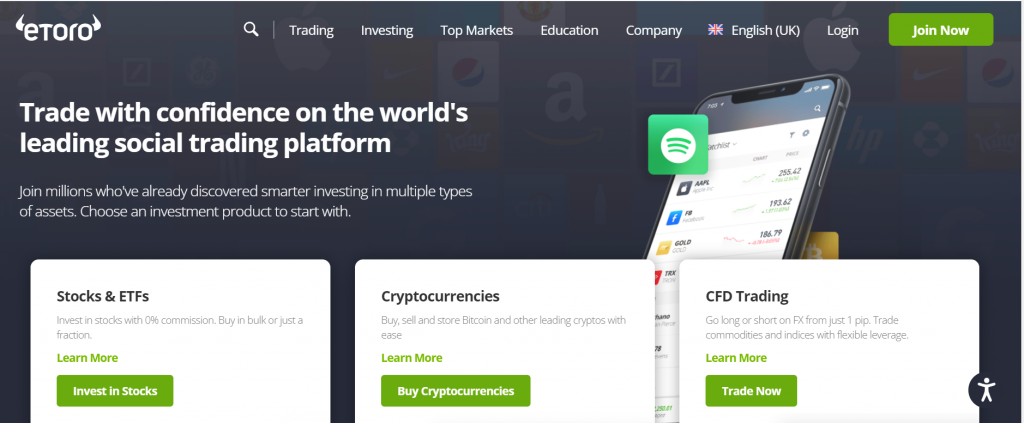
If you are a US resident, FDIC insures your cash holdings for up to $250,000 per person. For EU residents, eToro provides insurance up to 20,000 EUR.
CoinGecko Trust score: 8/10
Don’t invest unless you’re prepared to lose all the money you invest. This is a high-risk investment and you should not expect to be protected if something goes wrong.
FAQs
Conclusion – What Are the Best Regulated Crypto Exchanges in 2022?
It’s important to think about all of your requirements before choosing an exchange you want to use. We are devoted to giving our readers accurate evaluations of the best-regulated crypto exchange for traders of all levels. We chose regulated exchanges that we consider are secure, safe, easy to use, and have a history of high quality. Consider all the facts and choose the exchange that suits your needs.
Read also:
If you are not fond of EXCHANGE, Make sure to check out our guides on other cryptocurrency exchanges:



